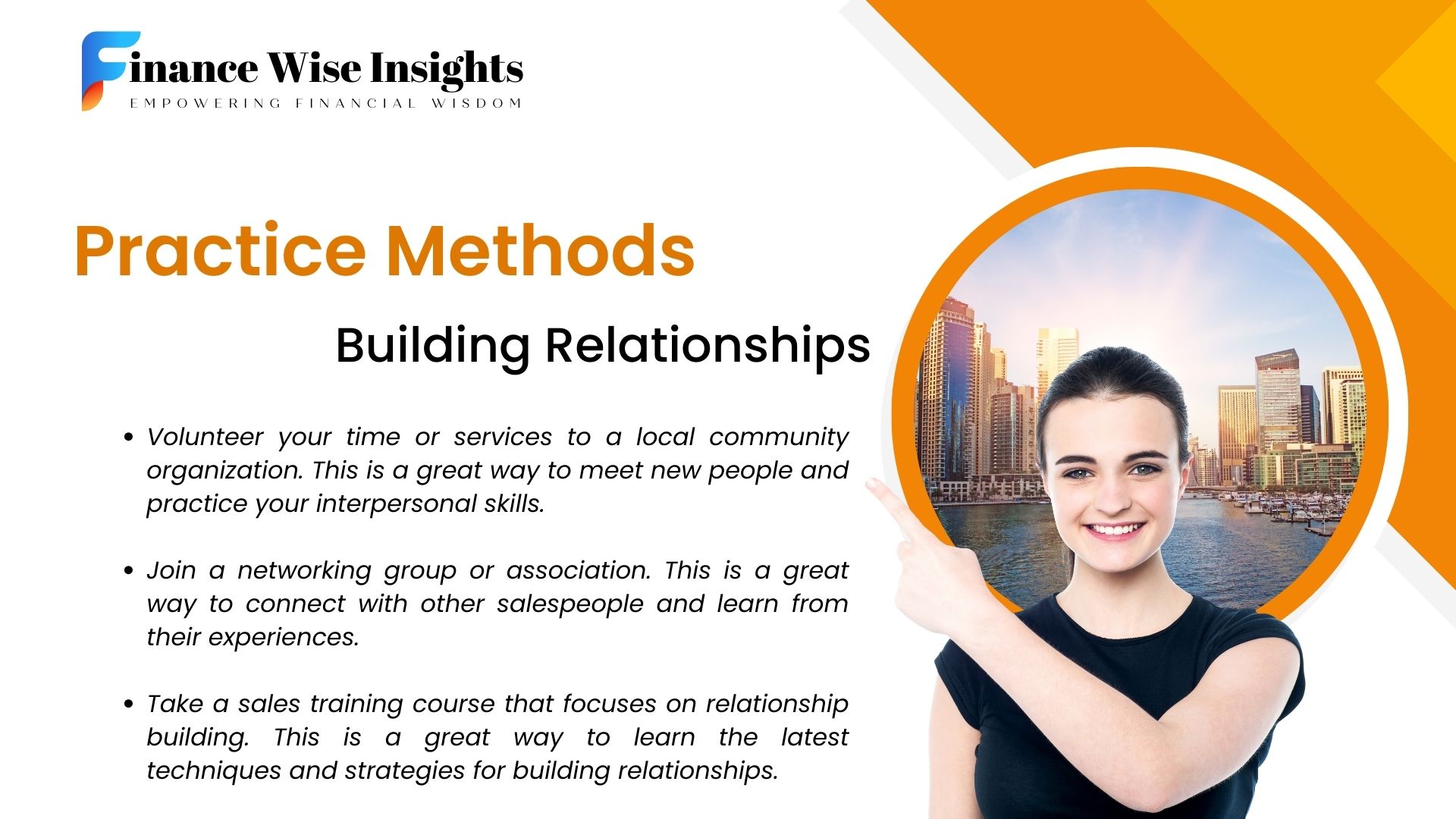The art of overcoming objections How to handle customer concerns by Building Relationships
Building relationships with customers is essential for salespeople. Strong relationships lead to repeat business, referrals, and positive word-of-mouth. Let’s figure out The art of overcoming objections How to handle customer concerns
The Importance of Building Relationships
There are a number of reasons why building relationships is important for salespeople. Here are a few:
- Repeat business: Customers who have a good relationship with a salesperson are more likely to do business with them again in the future.
- Referrals: Customers who have a good relationship with a salesperson are more likely to refer their friends and colleagues to that salesperson.
- Positive word-of-mouth: Customers who have a good relationship with a salesperson are more likely to recommend that salesperson to others.
How to Build Relationships
There are a number of things that salespeople can do to build relationships with customers. Here are a few tips:
- Be genuine and authentic: Customers can spot a fake from a mile away. Be yourself and build relationships based on trust and respect.
- Listen actively: Show customers that you are interested in what they have to say.
- Be helpful and supportive: Go the extra mile to help customers solve their problems.
- Follow up: Keep in touch with customers after the sale.
Understanding Customer Objections
Before we explore the strategies for handling objections, it’s crucial to understand what objections are. Customer objections are expressions of doubt, skepticism, or hesitation regarding a product or service. They can relate to various aspects, including price, quality, features, or timing.
The Importance of Building Relationships
Building strong customer relationships is the foundation for overcoming objections successfully. When customers feel valued and respected, they are more likely to voice their concerns, allowing you to address them proactively. A solid relationship fosters trust and openness.
Effective Communication
Effective communication is key to handling objections. Ensure that your communication is clear, concise, and tailored to the individual needs of your customers. Open channels of communication, such as live chat, email, or phone calls, should be readily available.
Listening to Your Customers
Listening is a critical aspect of communication. Actively listen to your customers’ concerns without interrupting. This not only helps you understand their objections but also makes them feel heard and appreciated.

Examples
Here are some examples of how salespeople can build relationships with customers:
- A salesperson might take the time to learn about the customer’s business and goals.
- A salesperson might offer to help the customer with a project or task.
- A salesperson might send the customer a thank-you note after the sale.
Practice Methods
There are a number of ways that salespeople can practice building relationships. Here are a few tips:
- Volunteer your time or services to a local community organization. This is a great way to meet new people and practice your interpersonal skills.
- Join a networking group or association. This is a great way to connect with other salespeople and learn from their experiences.
- Take a sales training course that focuses on relationship building. This is a great way to learn the latest techniques and strategies for building relationships.
Measurement Scale
There are a number of ways to measure the effectiveness of building relationships. Here are a few metrics:
- Repeat business: Track the number of customers who do business with you again.
- Referrals: Track the number of referrals you receive from customers.
- Positive word-of-mouth: Track the number of positive comments you receive from customers.
Acknowledging Customer Concerns
Acknowledge your customers’ concerns to show empathy and understanding. This step is vital in building rapport and trust. Let your customers know that their concerns are valid, and you are committed to addressing them.
Empathy and Understanding
Empathy is a powerful tool in overcoming objections. Put yourself in your customers’ shoes and try to understand their perspective. Empathizing with their situation will go a long way in building trust and resolving their concerns.
Providing Solutions
Once you have a clear understanding of your customers’ objections, it’s time to provide effective solutions. Offer detailed explanations, alternative options, or additional support that can alleviate their concerns.
Demonstrating Expertise
Showcase your expertise and knowledge about your products or services. Customers are more likely to trust a company that demonstrates its proficiency. Share success stories, case studies, or testimonials to highlight your capabilities.
Building Trust
Trust is the cornerstone of any strong customer relationship. Consistently deliver on your promises, be transparent, and maintain a high level of integrity. Building trust takes time, but it’s essential for long-term success.
Handling Common Objections
Every industry has its share of common objections. Here are some strategies to address a few typical concerns:
Overcoming Price Concerns
- Highlight the value and benefits of your product or service.
- Offer flexible payment options.
- Provide discounts or special promotions.
Addressing Product/Service Doubts
- Share case studies and success stories.
- Offer trials or samples.
- Provide a satisfaction guarantee.
Managing Timing and Commitment Issues
- Explain the process and timeline clearly.
- Offer support throughout the decision-making process.
- Communicate effectively to set realistic expectations.
Conclusion
Building relationships is an essential skill for salespeople. By following the tips above, salespeople can improve their ability to build relationships with customers and increase their chances of success.
In conclusion, the art of overcoming objections involves not just addressing customer concerns but also building strong relationships. By understanding objections, empathizing with customers, and providing solutions, you can turn objections into opportunities for growth. Remember that trust is the foundation of any successful business relationship.

